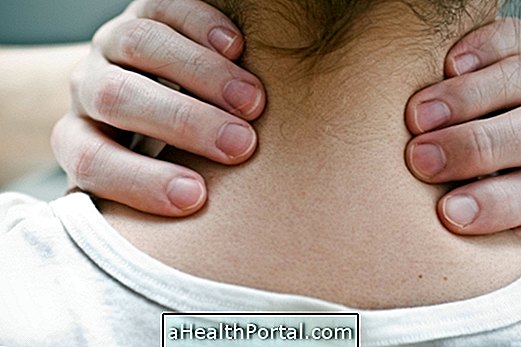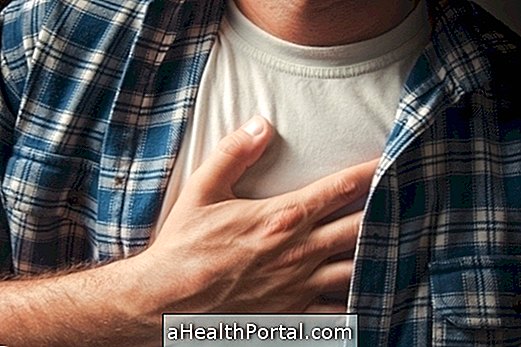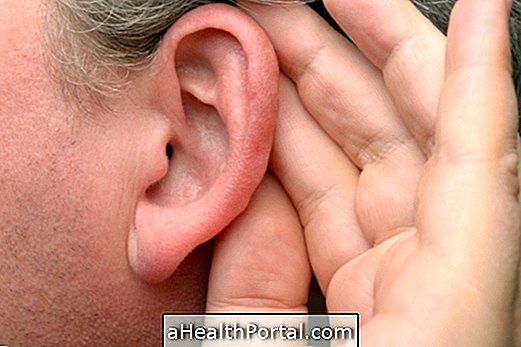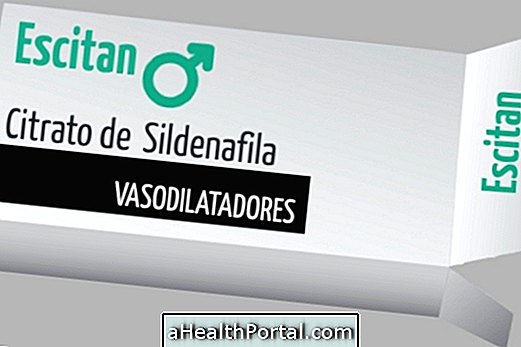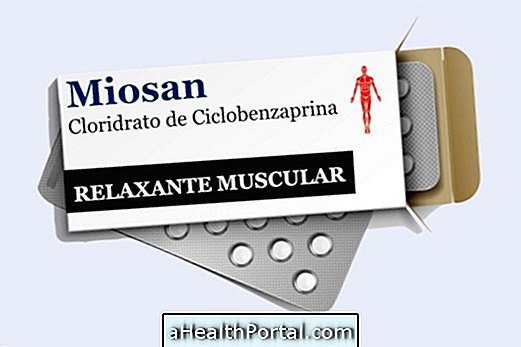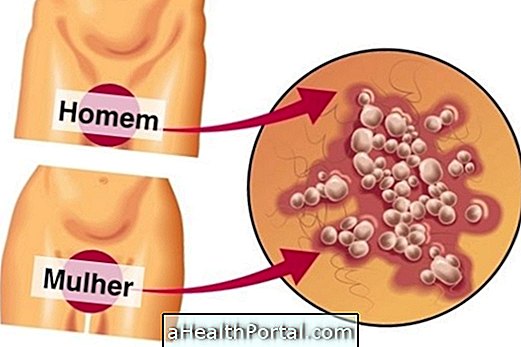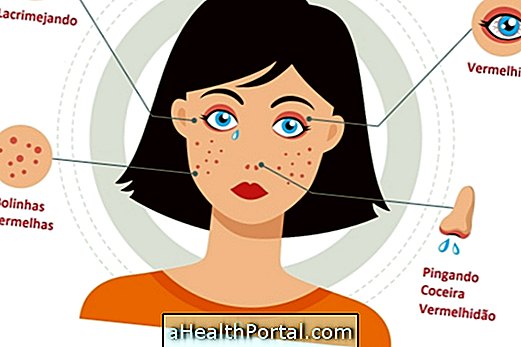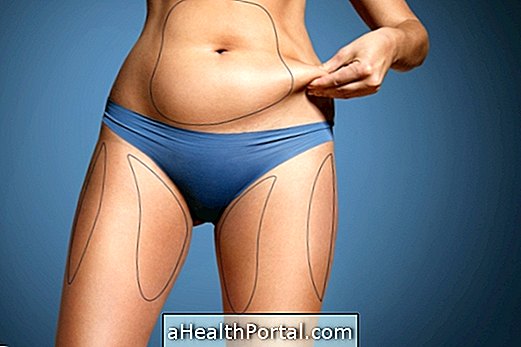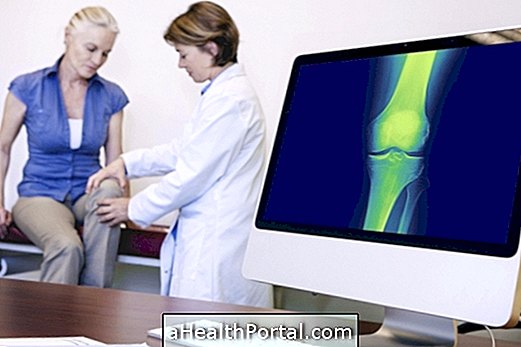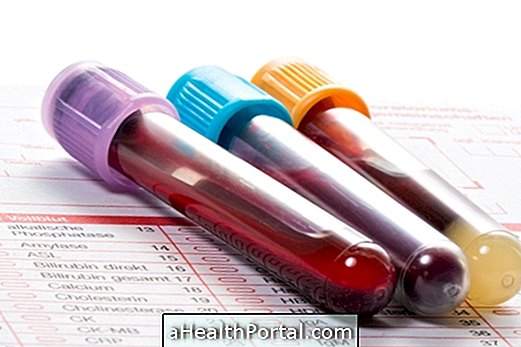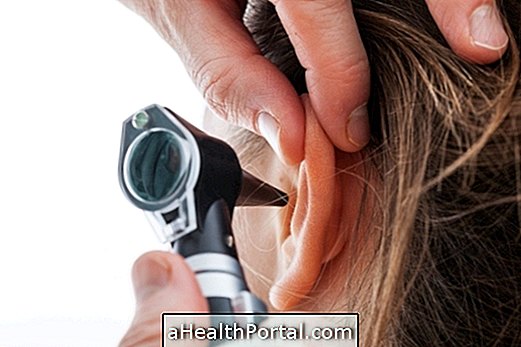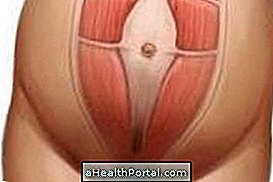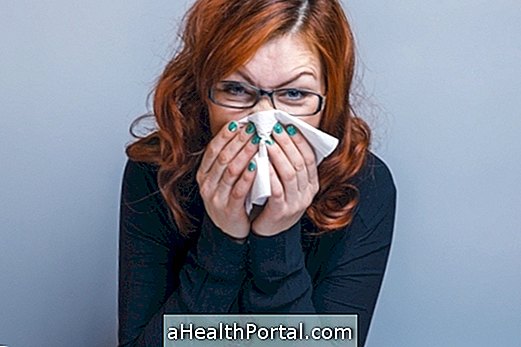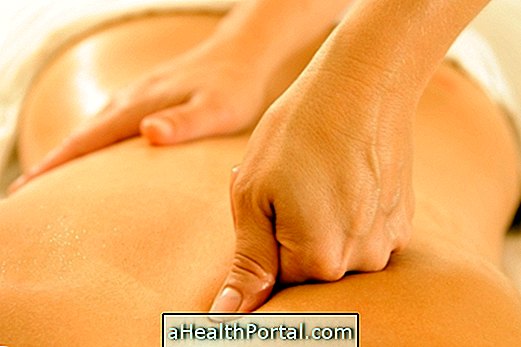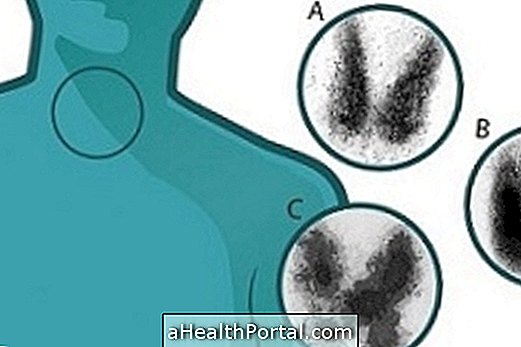The accelerated heart, known scientifically as tachycardia, is generally not a symptom of a serious problem, being often associated with simple situations such as being stressed, feeling anxious, having done intense physical activity or having drank excess coffee, for example.
However, having a racing heart can also be a sign of heart problems such as arrhythmia, thyroid disease, such as hyperthyroidism, or lung disease such as pulmonary embolism.
Thus, if the feeling of a racing heart often occurs, if it takes too long to pass, or if it appears associated with other symptoms such as shortness of breath, dizziness or fainting, it is important to consult a cardiologist to identify the cause and, if necessary, start treatment. most appropriate.

The main causes of an accelerated heart are:
1. Intense physical activities
During or after any activity that requires physical effort, such as running, volleyball, basketball or football, for example, it is normal for the heart to accelerate because it needs to pump blood more quickly to ensure that the supply of nutrients and oxygen necessary for the functioning of the brain and muscles.
In these cases, the normal is that the heartbeat can reach up to 220 beats minus the person's age, in the case of men, or 226 beats minus the person's age, in the case of women. Find out more about the ideal heart rate during exercise.
What to do: You should check your heart rate during physical activity, which can be done manually or with monitors or watches that measure your heart rate. If the value is higher than indicated or if other symptoms appear, such as weakness, dizziness, malaise, chest pain, medical attention should be sought immediately or the nearest emergency room. It is also essential, before starting any sport, to make an evaluation with a cardiologist.
2. Excessive stress
An accelerated heart is one of the main symptoms of stress, which is a normal reaction of the body to situations in which the organism feels threatened. In addition to the increase in heart rate, rapid breathing, muscle contraction and increased blood pressure may occur.
However, when stress is chronic, there may be an increase in the hormone cortisol and other symptoms may appear, such as hair loss, irritation, dizziness, acne, headache, body pain or insomnia, for example.
What to do: It is important to identify the cause of stress, for example, work, studies or family problems, in addition to seeking activities that give pleasure such as meeting with friends, exercising and developing a hobby, such as photography or sewing, for example . Monitoring with a psychologist helps to seek self-knowledge and develop emotional balance, relieving stress. See 7 other strategies to combat stress.
3. Anxiety
Anxiety is a reaction that can occur in everyday situations such as speaking in public, participating in a job interview or taking a test at school, for example, and can generate symptoms of a racing heart, shortness of breath, tremor or fear. However, when anxiety persists or is excessive, generalized anxiety syndrome or panic syndrome can arise.
What to do: The best way to control anxiety and avoid feeling your heart speed up is to follow up with a psychologist or psychiatrist to identify the causes of anxiety and, if necessary, start treatment with anxiolytics, for example. Activities such as relaxation, meditation or light physical activities that do not make your heartbeat too fast, like walking or yoga, for example, can help to combat and control anxiety. In addition, healthy eating is recommended. Check out foods that fight anxiety.

4. Heart problems
Many heart problems can be associated with changes in the heartbeat, so the racing heart can be a sign that something may be happening to the heart.
A common problem is cardiac arrhythmia in which the heart beats rapidly or very slowly and may be associated with changes in the heart muscle, problems with signaling between the brain and the heart that controls heartbeat or hormonal changes, such as thyroid disorders .
What to do: In the case of symptoms such as a racing heart, dizziness, weakness, shortness of breath, chest pain, you should seek medical attention or the nearest emergency room immediately. Heart problems should always be monitored by a cardiologist so that the most appropriate treatment can be done. In some cases, the use of a pacemaker may be necessary. Learn how the cardiac pacemaker works.
5. Hyperthyroidism
The thyroid is a gland responsible for the production of thyroid hormones and when the production of these hormones increases, hyperthyroidism can arise. One of the symptoms of hyperthyroidism is a racing heart, in addition to increased blood pressure, nervousness, anxiety, insomnia and weight loss, for example.
What to do: an endocrinologist should be consulted to initiate the most appropriate treatment. Usually for the symptom of an accelerated heart caused by hyperthyroidism, treatment is done with beta-blockers, such as propranolol or metoprolol, for example. In addition, a balanced diet guided by a nutritionist can help provide nutrients to improve thyroid function. See what foods to eat to regulate the thyroid.
6. Lung problems
Often the heart rate increases in people with respiratory problems because the oxygen level decreases and then the heart needs to beat more often to ensure adequate tissue oxygenation. A lung problem that can cause a racing heart is pulmonary embolism that occurs when a clot obstructs a blood vessel in the lungs.
Other common symptoms of pulmonary embolism are hoarseness, shortness of breath, cough, chest pain, dizziness or excessive sweating, for example. Some conditions increase the risk of pulmonary embolism such as heart disease, cancer, surgery, blood clotting problems or CoviD.
What to do: pulmonary embolism is always life-threatening, so you should seek the nearest emergency room immediately if symptoms appear.

7. Use of thermogenic supplements
Thermogenic supplements are usually used by those who want to lose weight or increase their willingness to practice physical activities and act by increasing body temperature and speeding up metabolism. However, these supplements can act on the heart, speeding up the heartbeat, in addition to causing anxiety, irritation or insomnia, for example.
What to do: the ideal is not to use thermogenic supplements without guidance from a nutritionist. To increase caloric expenditure and fat burning during physical activity, the ideal heart rate for burning fat can be calculated. In addition, it is important to consult a cardiologist before beginning any physical activity to assess heart health. Learn how to calculate the ideal heart rate to accelerate fat burning.
8. Use of medicines
Some medicines to treat colds and flu, rhinitis, allergies, bronchitis or asthma for example, may contain substances such as pseudoephedrine, oxymetazoline, phenylephrine or salbutamol that generate side effects, including a racing heart.
What to do: in case of an accelerated heart with the use of flu, stop using it immediately and if there is no improvement in symptoms, seek medical help immediately. These substances that speed up the heartbeat should only be used with medical recommendation, after clinical evaluation.
9. Pregnancy
The racing heart is a common symptom in pregnancy and is considered normal. This change is mainly due to physiological changes to maintain the proper functioning of the maternal body, in addition to providing oxygen and nutrients for the baby.
What to do: no treatment is usually necessary, however, prenatal care should be performed with the obstetrician gynecologist to ensure the health of the mother and baby. In addition, a balanced diet during pregnancy, light physical activities such as walking or water aerobics, and avoiding coffee consumption help to maintain health and have a peaceful pregnancy. In cases where the woman already has heart problems, it is important to follow up with a cardiologist before becoming pregnant. Learn more about how to control a fast heart during pregnancy.
Was this information helpful?
Yes No
Your opinion is important! Write here how we can improve our text:
Any questions? Click here to be answered.
Email in which you want to receive a reply:
Check the confirmation email we sent you.
Your name:
Reason for visit:
--- Choose your reason --- DiseaseLive betterHelp another personGain knowledge
Are you a health professional?
NoMedicalPharmaceuticalsNurseNutritionistBiomedicalPhysiotherapistBeauticianOther
Bibliography
- MAYO CLINIC. Heart arrhythmia. Available in: . Accessed on 02 Nov 2020
- MAYO CLINIC. Pulmonary embolism. Available in: . Accessed on 02 Nov 2020
- MAYO CLINIC. Tachycardia. Available in: . Accessed on 02 Nov 2020


